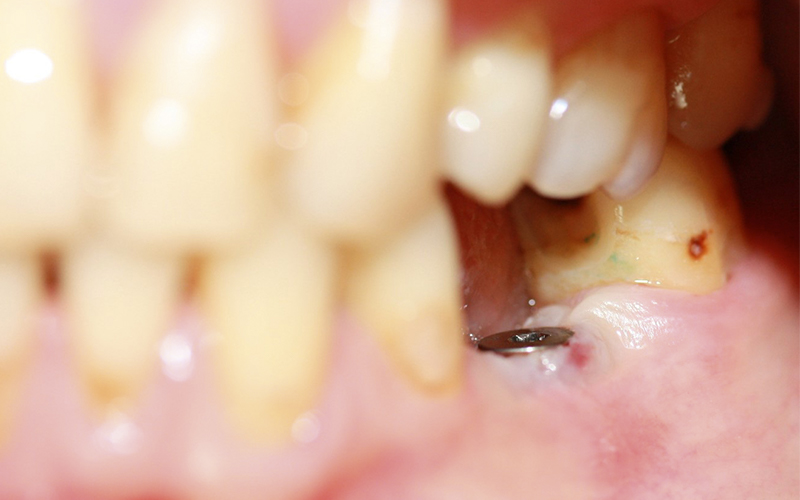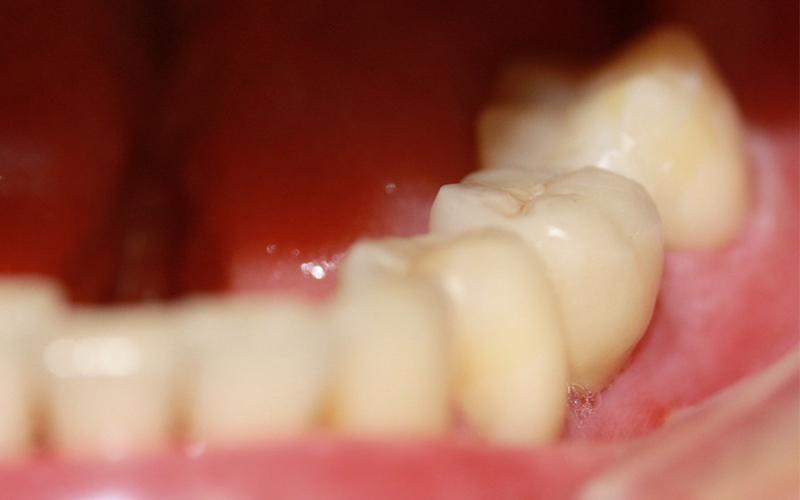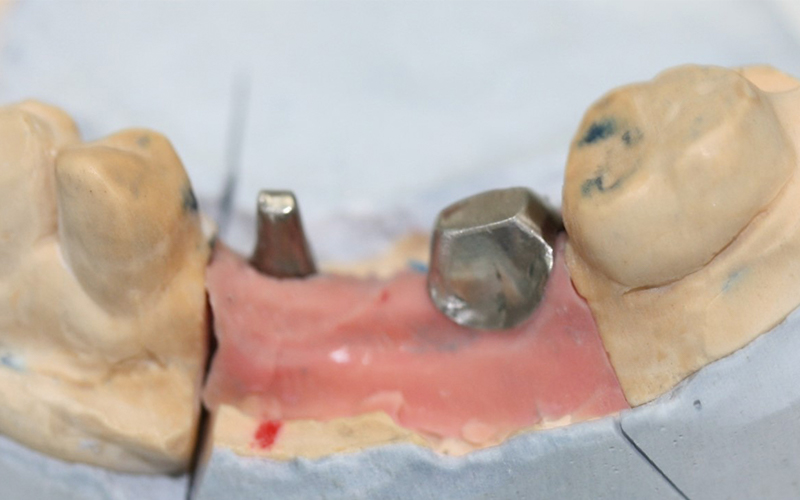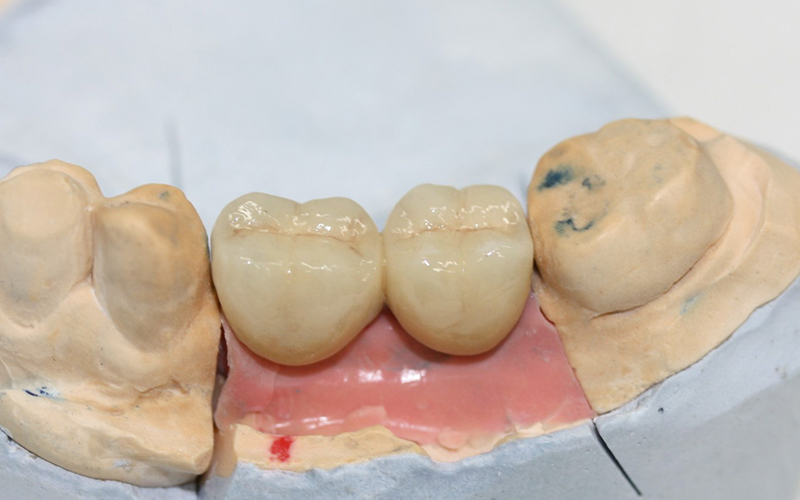A permanent solution for tooth loss
About dental implants
What are implants?
Dental implants are metal posts positioned into the jawbone. They act as a replacement root for the missing tooth.
Mounting an implant?
After a titanium screw is installed, and depending on the case, an implant might need several months to fuse with the surrounding bone. The impression is then taken and the technicians construct the crown. Such a tooth acts and looks like your lost natural tooth.
The mounted implants, depending on need and case, can support:
- in case of the loss of one tooth – individual crowns
- in case of several teeth loss – bridge on the implants
- in case of a completely toothless jaw – All on 4 – prosthesis on 4 implants – ceramic bridge on 6 implants
What are conditions for implant-mounting?
For the implant to be mounted successfully, it is necessary to meet several conditions:
- Sufficient width, height, and thickness of the remaining jawbone.
For detailed determination of the amount of bone, we need dental scans that we make directly in our Studio.
For greater accuracy and precise cost determination, we send our patients for CT dental imaging, to scan the exact part where we plan to place the implants. - Healthy or cured remaining teeth of the jaw and healthy gums without signs of inflammation
What does implant-mounting look like?
It is performed under local anesthesia and it is completely painless. The procedure is performed under sterile conditions and depending on the complexity of the case, it might last from 45 minutes to 2 hours.
How many times do I have to come to the dental office?
Twice in the interval of 3-5 months. Implant mounting is done during your first appointment.
The second visit is usually after 3-5 months: we will take the impression of your teeth and construct the necessary crowns, bridges or dentures.
Advantages and disatvantages of dental implants
Advantages of dental implants:
- It is not necessary to intervene on the adjacent teeth
- They are not subject to caries
Disadvantages of dental implants:
- Increased costs
- More planning (scans, CT)
- They are mounted with a small surgical procedure
- They take a few months to heal before we can put a permanent tooth replacement
What should I know?
Keep in mind that this explanation is general, talking with you is important and essential to find the best solution for your teeth!
Even in the cases where a lot of bone is preserved and the situation is perfect, it might be better to construct a bridge if the remaining teeth are damaged and with major fillings. In such a situation, it is better to prepare and protect the remaining teeth with dental crowns, thus solving two problems.
If you have a problematic bite as well as tooth loss, we will sometimes advise an orthodontic therapy as this is a smarter and better long-term solution, often at a lower cost than implant installment.
Advantages of dental implants:
Disadvantages of dental implants:
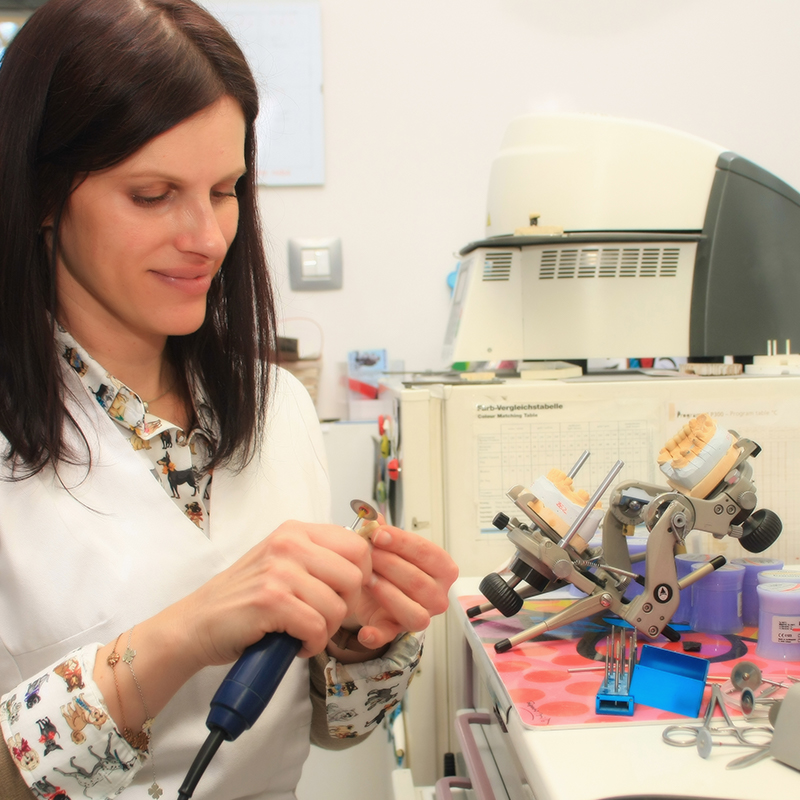
Take a look at our work
Before & After
